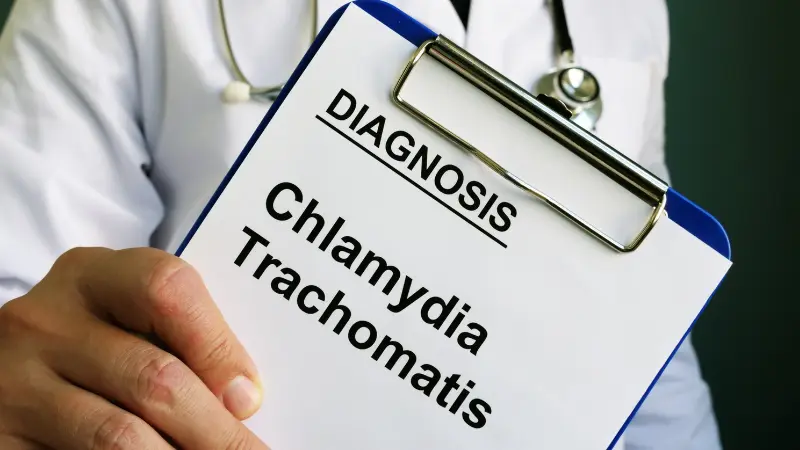
Chlamydia Treatment in Chennai | Aura Sexual Health Clinic
Effective Chlamydia Treatment in Chennai
Aura Sexual Health Clinic, Chennai, has been one of the proficient places for the treatment of chlamydia, a sexually transmitted infection. Chlamydia is an infection that is sexually transmitted and may lead to serious health complications if not treated, even infertility in certain cases. We have a team of experienced doctors who diagnose the disease with accuracy and treat it effectively with antibiotics besides taking care of follow-up and aftercare.
What is Chlamydia?
Chlamydia is a bacterial infection emanating from a bacterium known as Chlamydia trachomatis. It is among the most diagnosed STIs the world over. Quite often, chlamydia presents no symptoms, and it is so easy to disregard it. If chlamydia remains untreated, it can eventually lead to critical reproductive health complications in both men and women.
Common Symptoms of Chlamydia:
• In Women:
- Abnormal vaginal discharge
- Pain or burning sensation during urination
- Abdominal or pelvic pain
- Pain during sexual intercourse
- Bleeding between periods
• In Men:
- Pain or burning sensation while passing urine
- Discharge from the penis
- Pain or swollen testicles
- Rectal pain or discharge (if infected through anal sex)
Chlamydia Treatment at Aura Sexual Health Clinic
At the Aura Sexual Health Clinic, we provide dedicated treatment for chlamydia using the most recent types of antibiotics recommended by professionals in the medical field, effective in curing chlamydia. Here is how we undertake the treatment:
a) Diagnosis of Chlamydia
Accurate diagnosis is the first step in the treatment of chlamydia. Our clinic offers fast and reliable testing for chlamydia, which may include:
- Urine tests: The patient's simple urine sample is checked for the bacteria Chlamydia trachomatis.
- Swab tests: The accurate sample is taken from the cervix among females, from the urethra among men, or the rectum/throat where the infection is suspected.
b) Antibiotic treatment of chlamydia
Once the disease of chlamydia has been diagnosed, treatment generally involves taking a course of antibiotics to clear up the infection. The common treatments for chlamydia infection include:
- Azithromycin (single-dose treatment)
- Doxycycline (which is taken over a span of seven days)
Both drugs are extremely effective in treating chlamydia, but the full treatment of antibiotics should be carried out as directed, even after symptoms disappear, to clear up the infection entirely.
c) Follow-Up Care and Monitoring
A follow-up is recommended at the end of treatment to ensure the infection has been treated. Further testing will be done, and other forms of treatment will be considered if there are persistent symptoms after medication.
d) Notification of a Partner and Treatment
It's also crucial that any sexual partners within the last 60 days be tested and treated for chlamydia in order to avoid reinfection. We offer partner notification services and can help guide you through telling your partner(s) in a sensitive and non-judgmental way.
Why Choose Aura Sexual Health Clinic for Chlamydia Treatment in Chennai?
Expert Care: Our clinic has a team of experienced doctors who specialize in the diagnosis and treatment of sexually transmitted infections, including chlamydia. We offer personalized, professional care for every patient.
- Confidential and Non-Judgmental Environment: We ensure that all consultations and treatments are conducted in a confidential and non-judgmental manner, allowing you to feel comfortable throughout your treatment.
- Comprehensive STI Care: We offer comprehensive services in the testing, treatment, and follow-up of chlamydia and other STIs.
- State-of-the-Art Testing and Treatment: We employ the latest diagnostic tools and most effective antibiotic treatments to ensure that your chlamydia treatment is both fast and effective.
Preventing Chlamydia and Other STIs
The best way to prevent chlamydia, like most other STIs, is to be preventive. Here are some important steps to keep you safe:
- Use of Condoms: Condoms significantly reduce transmitting or acquiring chlamydia and other sexually transmitted infections when used consistently and correctly during vaginal, anal, and oral intercourse.
- Get Tested Regularly: In case you are sexually active, especially with several partners, it is very important to get regular testing for STIs to find the infections early and avoid complications.
- Limit Sexual Partners: Decreasing the number of sexual partners and communicating openly about sexual health is one of the most effective ways to reduce the risk of infection.
- Avoid Unprotected Sex: If you or your partner have symptoms of an STI, avoid sexual activity until you have been tested and treated.
Book an Appointment for Chlamydia Treatment in Chennai
If you think you might have chlamydia or need to get tested for STIs, schedule an appointment with our specialists at Aura Sexual Health Clinic, Chennai, for confidential testing and treatment and follow-up care that will help you stay in control of your sexual health.
Meet With Doctor